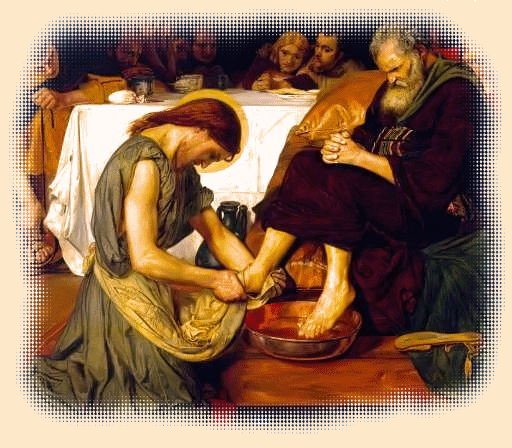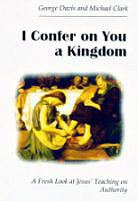Prayer is first and foremost an attitude of the heart. For this reason the recorded prayers in the New Testament are exceptional, in that they reveal the heart attitude of the first century believers, reflecting the way they related to God and each other. In Acts 4:23-30 we find such a prayer that reveals an attitude of humility that is rarely seen in the modern-day Church. Peter and John had just been released from the local jail where they had been confined by the Jewish leaders for their part in the healing of the lame man at the Beautiful Gate. Upon being released, they made straight for their companions and reported all that the chief priests and elders had said to them. Upon hearing the news of their threats to punish all that preach in the name of Jesus, the brethren raised their voices to God with one accord and said:
"Lord, You are God, who made heaven and earth and the sea, and all that is in them, who by the mouth of Your servant David have said: 'Why did the nations rage, And the people plot vain things? The kings of the earth took their stand, And the rulers were gathered together against the LORD and against His Christ.' "For truly against Your holy Servant Jesus, whom You anointed, both Herod and Pontius Pilate, with the Gentiles and the people of Israel, were gathered together to do whatever Your hand and Your purpose determined before to be done. Now, Lord, look on their threats, and grant to Your servants (doulos) that with all boldness they may speak Your word, by stretching out Your hand to heal, and that signs and wonders may be done through the name of Your holy Servant Jesus." (Acts 4:23-30)

Note the common thread of servanthood throughout this prayer. There is reference to "your servant David" and "Your holy Servant Jesus, whom You anointed." Moreover, in referring to themselves as slaves (doulos), they proved that they had learned the lesson that Jesus was teaching them when He said, "and whoever would be first among you must be your slave (doulos)" (Matthew 20:27 RSV).
The early disciples finally came to understand that it was through Christ's servanthood, His life laid down, His decent to the cross and resurrection, that the power of God was released among them (Ephesians 1:19). So it was that they sealed this prayer in the name of the "holy Servant Jesus." These men who had once argued over who would be the greatest now wore the name servant with the utmost respect. The Lord Jesus himself had instructed them to view servanthood as the highest vocation. They finally understood the kingdom that He had conferred upon them. Jesus had passed through this earthly veil as a servant. He humbled Himself, taking on the form of a slave and was obedient unto the death of the cross. In this way He made an open show of powers and principalities. By the cross He deprived the grave and death of their power as well. By the power of God He was resurrected, exalted and given a name above every name and is now seated at the right hand of the Father. It was their conformity to the sufferings of Christ that brought the power of heaven to bear in their lives. His cross had become their cross. The message of the cross is the power of God.
"The word of the cross is foolishness to those who are dying, but to us who are saved it is the power of God" (1 Corinthians 1:18). God's blessing and power rest on the lived-out-word of the cross. So much so that Paul could say without equivocation, "The word of the cross . . . is the power of God." Not to everyone, mind you, but to those who are being saved--who are embracing the mind of Christ.
Elsewhere Paul wrote, "For we do not want you to be ignorant, brethren, of our trouble which came to us in Asia: that we were burdened beyond measure, above strength, so that we despaired even of life. Yes, we had the sentence of death in ourselves, that we should not trust in ourselves but in God who raises the dead" (2 Corinthians 1:8-9 NKJV). The Bible in Basic English has a better translation of this passage. Verse nine reads, "Yes, we ourselves have had the answer of death in ourselves, so that our hope might not be in ourselves, but in God who is able to give life to the dead" (2 Corinthians 1:9 BBE). The answer of God to the weakness of the flesh is death working in ourselves. As Paul put it, "Death works in me that life might abound in others."
The message of the cross, spoken and lived out, releases the dunamis power of God. It is through servants walking the path of the cross that this power is released. When they pray, "Grant to your servants," things begin to happen. What did happen after the brethren prayed that day? Did they simply dismiss and go home, hoping that God would answer their prayers in time? No! "When they had prayed, the place where they were assembled together was shaken; and they were all filled with the Holy Spirit, and they spoke the word of God with boldness" (Acts 4:31). God answered immediately, perhaps while they were yet praying. Why? He is quick to grant to His true servants. The Father will honor them!
As believers, we are seated with Christ in heavenly places, but the path of the cross yet lies before us. One day, we shall witness the ultimate victory when the last trumpet sounds and the dead in Christ rise to meet Him in the air. "Ain't no grave gonna hold this body down!" As for now a pathway lies before us--the cup and the baptism--the very path that Jesus pioneered, making Him the firstborn from the dead.
And he is the head of the body, the church: who is the beginning (arche), the firstborn from the dead; that in all things he might have the preeminence. (Colossians 1:18)
There is only one path to fruitfulness. There is only one path to the realization of life. It is the way less traveled, the way of the cross. "Because, narrow is the gate, and confined, the way, that leads unto life, and few are they who find it" (Matthew 7:14). It is a way paradoxically cloaked. It is a path that is considered foolishness to the intellectual man and a stumbling block to the religious man. It is like the wicket gate in the classic Pilgrim's Progress. It is difficult to see for its narrowness.
Evangelist: (pointing with his finger over a very wide field) "Do you see yonder wicket gate?" (Mt 7:14)
Christian: "No."
Evangelist: "Do you see yonder shining light?" (Psalm 119:105 2Peter 1:19)
Christian: "I think I do."
Evangelist: "Keep that light in your eye, and go up directly thereto; so shalt thou see the gate."
Upon hearing this, Christian turned and began running toward the light. His wife, children and neighbors seeking to dissuade him, cried, "Come back! Come back!" But Christian, quickening his pace and placing his hands over his ears, shouted with all of his might, "Life! Eternal life!"
Do we really want to have part with Jesus? Then we must, with equal abandon and resolve, obey His teachings, no matter what the cost! Do we really want to know Him in the fellowship of His suffering, to fill up that which is lacking in His suffering (Colossians 1:24)? Do we truly desire to yoke with Him or would we rather obey our flesh and do it ourselves? If we do choose His way, we must cease our posturing and take the lowest seat. From His birth to the cross this was Jesus' lot, His portion, and His destiny. We must assume the posture of the lowly Christ, as servants! Not in word but form. Jesus took on the form of a servant. This is the example He gave us. The problem with so much that is called "servanthood" in Christian circles today is that there is lots of talk but little form. Should we think it exceptional for a man who wears extravagant suits, Rolex watches, flies around in his personal jet and is paid a huge salary for his services to have it said of him "He has a servant's heart?" If there ever was a contradiction of terms this is it, for the heart of such a servant is impugned by his posturing. The Lord not only detests a proud heart, but also a proud look. The questions we should all ask ourselves are; do we have a servant's form? Have we made ourselves of no reputation? Have we emptied ourselves of the ambition to climb? Do we take the lowest seat, as our Lord commanded, or do we elevate ourselves by the use of vestments, suits and titles which set us apart and above the rest of the body of Christ? Do we take the form of a servant as Jesus did? This is the real test of the heart. Jesus' words to Peter "If I do not wash you, you have no part (portion, destiny) with me" were an invitation to participate in his life and ministry (1 Corinthians 6:9-11). They are an invitation to us as well.
God, give us the courage to repent and return to the teachings of the lowly Christ! May we abide in your Son and walk just as He walked. Bring us again, as brothers and sisters, to that place of equality at the foot of the cross. Move those with hearing ears and willing hearts to repent of their involvement in the mystery of iniquity so our gatherings might again be known for your presence and rule and no longer be the comedic subject matter of late-night talk-show hosts, jeering at us in our captivity like Samson's tormentors. We acknowledge that the invitation "Come up here," to sit with you in your throne and reign with you in life, is issued only to those who obey your beloved Son and take the lowest seat. We have no part with Him otherwise. Jesus, give us the courage and resolve to obey your teaching and walk as you walked, to hate what you hate and love what you love, regardless of the cost. Life! Eternal life!
Amen!

This article is available in book form. See our Books in Print page for more information.
to top